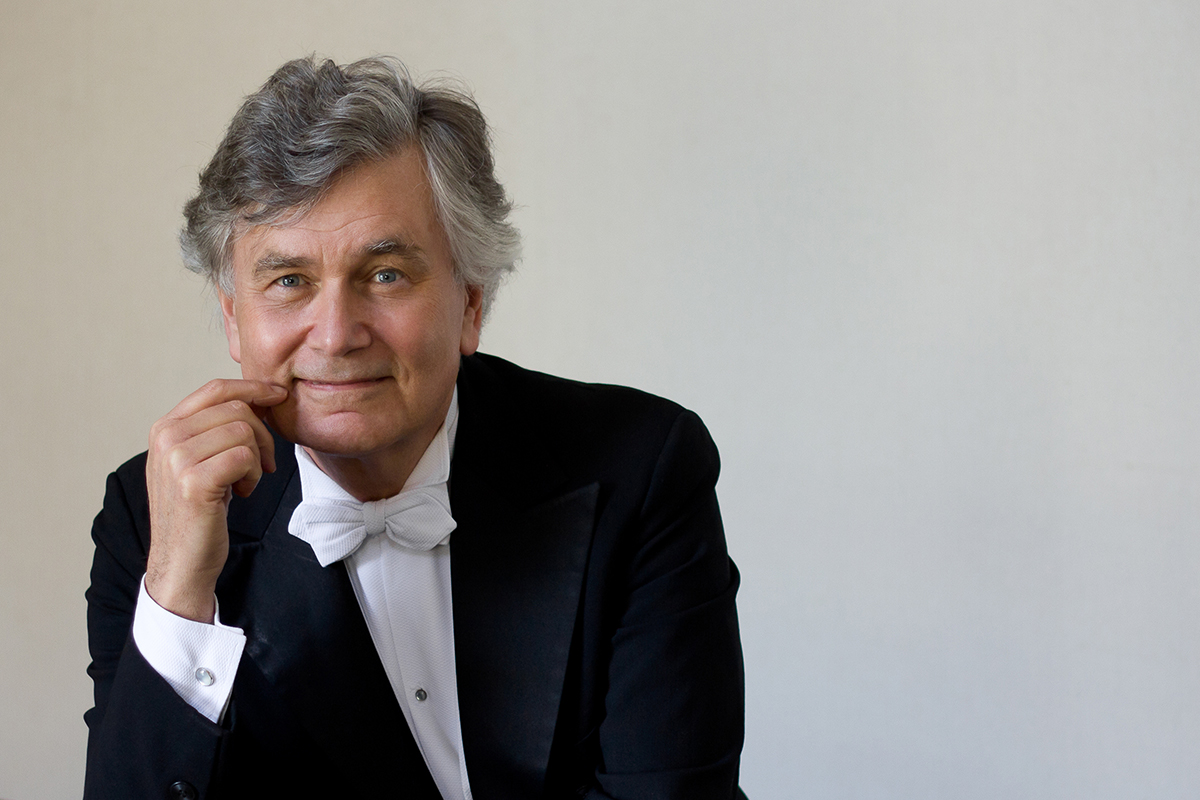by Lenka Dohnalová
American pianist of Serbian-Russian origin, Eugen Indjic (1947), belongs to the top of his field. He is a long-time friend of the Czech country and Czech musical culture. Unfortunately, he was afflicted by a progressive autoimmune disease, leaving him bedridden and unable to carry on with his career and teaching responsibilities. He lives with his family in seclusion in Villeneuve-sur-Verberie, north of Paris, with his wife Odile. We are glad that he agreed to an interview on the occasion of the award presentation of the Czech Music Council at his home.
In one of the interviews conducted for the FOK Symphony Orchestra concert, you said, and I quote, “Maybe because I have Slavic roots, I liked the concert. Since then (Prague Spring 1972), Prague has been my second home.” Although this is probably a kind of exaggeration, you have many artistic friends here. Who do you like to remember in this context?
It’s not an exaggeration. Prague has been my most loyal city for fifty years. The symphony orchestra of the capital. The Prague Symphony Orchestra FOK even made me an resident artist for several years. I have more friends in this country than anywhere else. I already knew Kubelík and Firkušný from the USA. Then my younger friends Lapšanský, Šefl, Klánský, Altrichter, Svárovský, Toperczer, Bělohlávek… And of course, my students, some of whom have become close friends.
And what about organised master classes? Just recently, the pianist and teacher Jan Jiraský remembered your instruction, which he understood only later. Sometimes we need time to understand…
Rubinstein told me that at eighty, he still didn’t understand Chopin’s Fourth Ballade, how to project the grand form and not lose the intimate phrasing. Chopin is the most difficult for me in this respect. Young people find it difficult to plan their emotions. That’s why a thorough knowledge of the piece is necessary. For me, the best source is H. Schenker.
You are a renowned interpreter of classical, romantic, and impressionist works. Have you ever played Smetana, Dvořák? And do you have a favourite interpreter of these composers?
There are wonderful performances by my friends and students, but I’m afraid I would offend anyone by stating my preferences. Ančerl, Kubelík are certainly very special. I myself have played mostly chamber music and concertos by Czech composers.
You have repeatedly said that you see a difference in the interpretation of Chopin, for example. Jan Jiraský just completed a project last year in which artificial intelligence identifies the places where the interpretation of Smetana by Czech and foreign pianists differs. I find it interesting.
What I admire about Czech musicians is the way they integrate national feeling into a strict form. If a computer can decipher these nuances, so much the better. But there is no substitute for personal contact. For Chopin, four of my teachers were Poles: Rubinstein, Małcużyński, Munz, and Schmaeling.
Hopefully the computer can at least point in the right direction, but it will remain superficial. One cannot replace all of life’s feelings and experiences with a machine. As this technology becomes indispensable, compromise is entirely possible, but it must be managed with talent and care.
Although the Baroque and Classical styles have been thoroughly researched, it is only recently that the Romantic style has been subjected to a similar discipline. When you listen to recordings of students of Liszt or Clara Schumann playing 19th century music, they are classical in their rhythm and conception. I suggest that students learn this music as if it were Mozart. Once the form is ingrained, the details of harmony and rubato find a home. Because music is mathematical and geometric, we can use computers as instruments. For example, take a rhythm like 3/4: a computer will make it mathematically perfect, but it will sound wrong because that rhythm is different in a sarabande, a minuet, a waltz, or (most difficult) a mazurka. At this point, even the most advanced computer cannot replace the myriad of human nuances.
That’s an interesting comment. It’s a matter of evaluating the context. Thank you.



